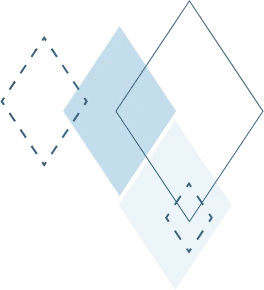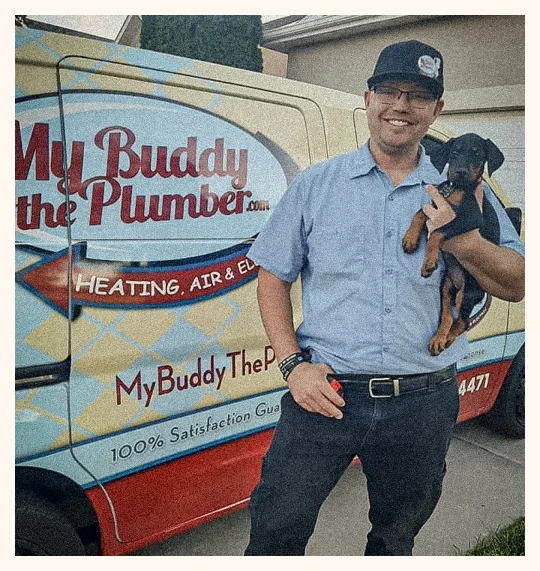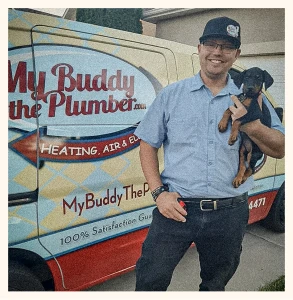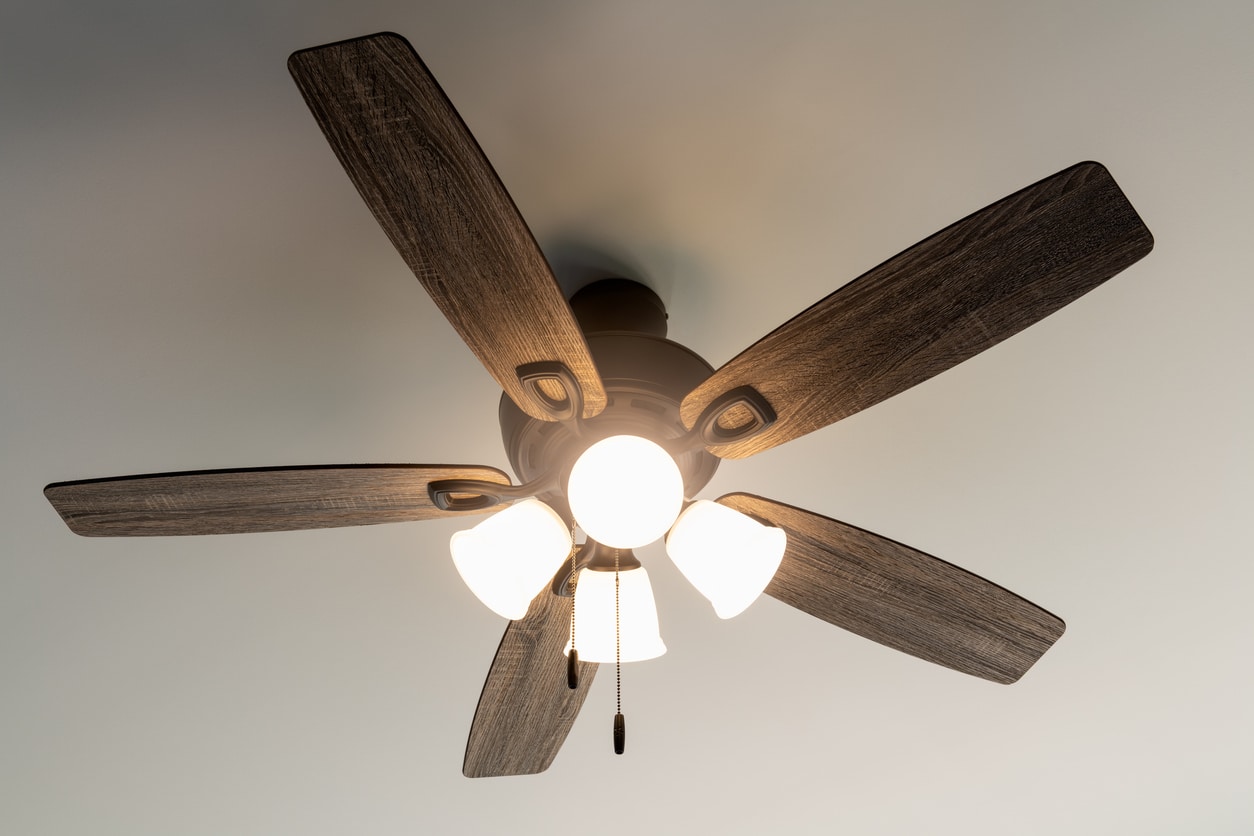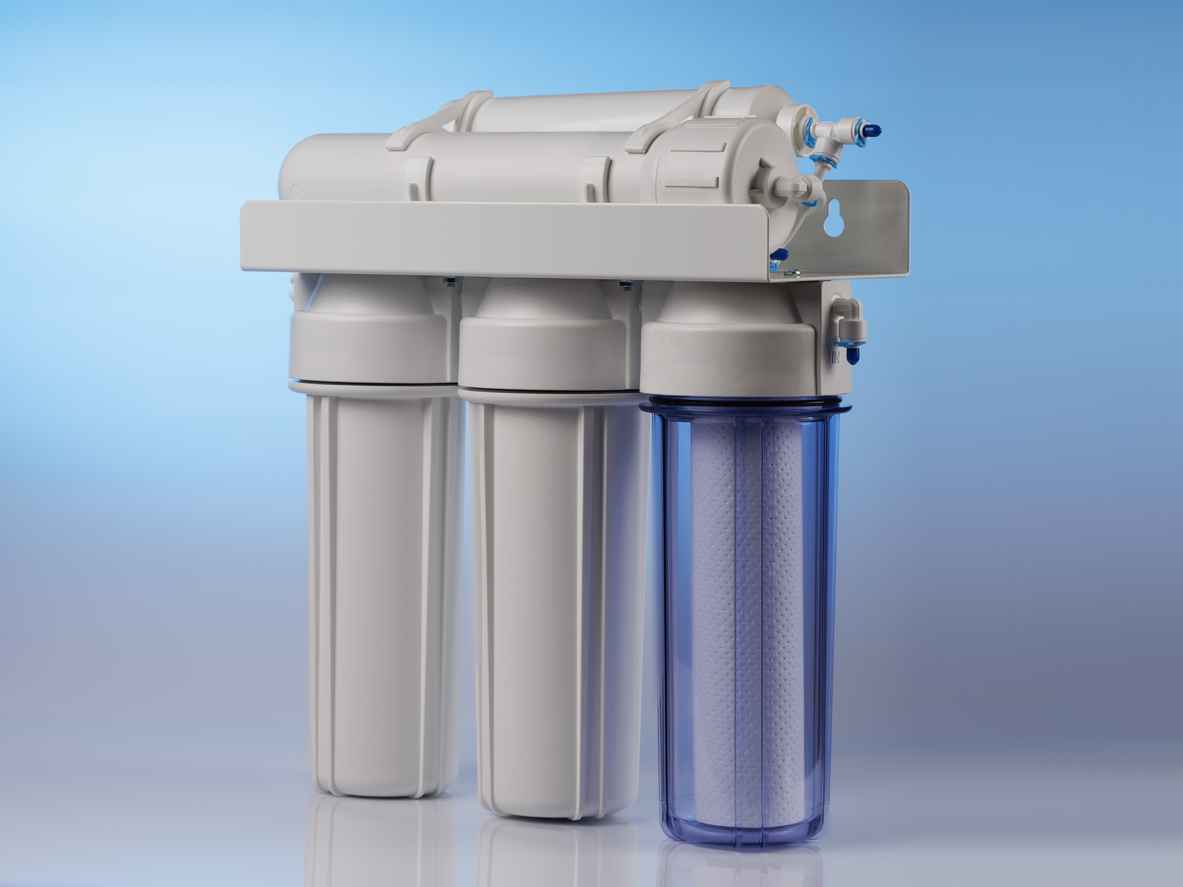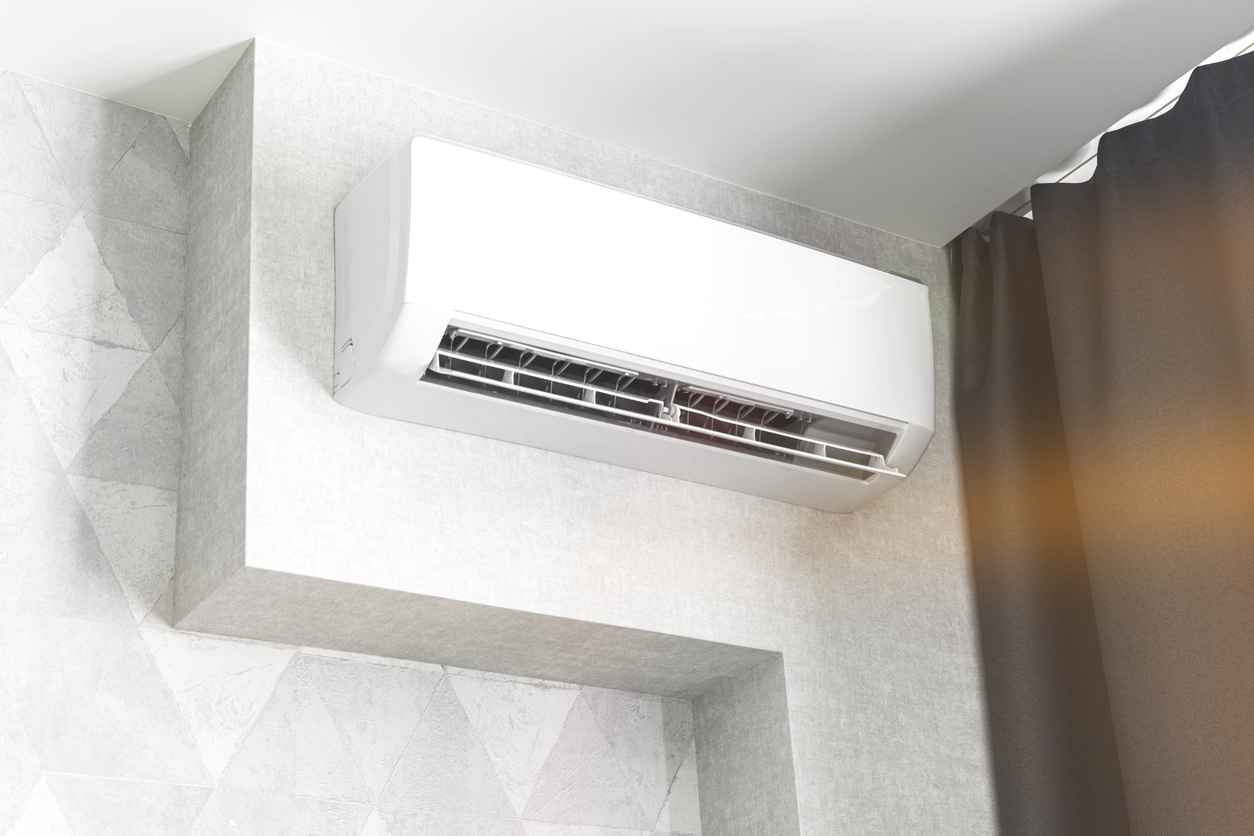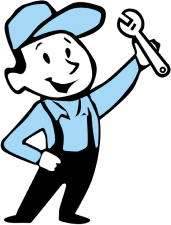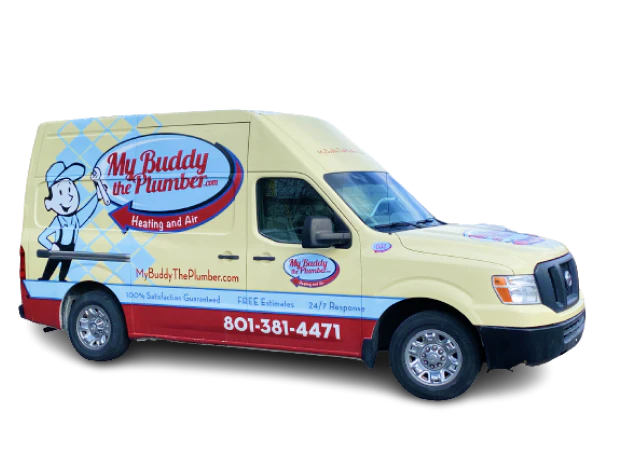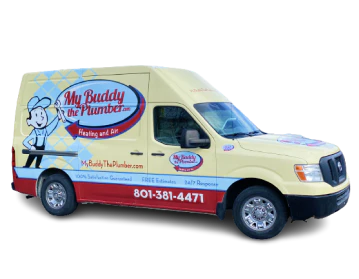Answering Common Hot Water Heater Questions
The water heater in a given home is vital throughout the year, but takes on even more importance as we head into fall and the upcoming winter. Water heaters will have to work their hardest during these colder months to warm up water that starts at a colder average temperature, and they also receive more overall demand and usage in many homes during winter than in summer.
At My Buddy the Plumber, we’re here to assist you with a wide variety of potential water heater needs, from water heater repair up through water heater replacement and even installation of modern tankless water heaters. For those looking to increase their water heater knowledge headed into the colder part of the year, here are some answers to common questions surrounding these vital home plumbing components.

How Hot Should My Water Be?
This is a vital question for homeowners, and one that impacts the settings and temperature controls of their water heaters. One thing to remember is that the ideal temperature differs according to several factors, including:
- Who is in your home? (Families with children or elderly citizens may require a lower setting for safety concerns.)
- What do you use the hot water for? (Hotter temperatures are needed for certain purposes than others.)
- How quickly does your hot water run out? (A lower setting will save you money and energy, but may not be ideal for certain uses.)
Typically, modern American homes have their hot water set anywhere from 120 to 140 degrees Fahrenheit. It’s important to note that if you’ve recently had a major appliance installed or major work done in your home, you should always consult with a professional plumber to ensure that all settings are compatible with your new system — failure to do so risks not only poor performance from that appliance, but also potential voiding of warranties and other potential safety concerns.
How Long Does it Take for Hot Water to Get to Me?
Again, this answer depends on a variety of factors, including:
- Your location in the home (Generally speaking, water closer to your hot water heater will reach you faster.)
- The distance the water has to travel (Hot water traveling through longer piping runs may be affected by heat loss.)
- How much hot water is left over when you get in the shower? (A homeowner with a small tank or one that’s nearly empty will experience less time until delivery of hot water than someone whose tank is full.)
If you’re seeing long delays for hot water to reach your appliances — and especially if this is happening in areas that are relatively close to the hot water heater — you should consult with a professional plumber to get to the root of the problem.
Why am I Running Out of Hot Water?
Have you begun recently experiencing situations where you simply run out of hot water, or do you regularly find yourself turning on the hot water for multiple appliances and waiting longer than normal? If so, there are a few potential causes of this.
A quick way to check your most common usage points is by filling up your bathtub halfway, then shutting off the tub’s drain valve and running all open faucets until all of the water has drained from the tub. If your tub takes more than a few minutes to drain, you likely have a hot water delivery problem somewhere in your home.
There are a variety of reasons why a homeowner may be running out of hot water — for example, if they have old or poorly insulated piping connected to their hot water heater, heat loss along the piping may cause their hot water to run out faster than normal. A plumber can help you determine exactly where in your system this problem is occurring and what options are available for a solution.
How Can I Conserve Hot Water?
There are several ways to conserve your hot water, from limiting usage to dropping temperature a few degrees, but one stands out specifically: Checking for leaks and other pipe damage. Leaks are the most common cause of wasted hot water, and are often hidden or hard to determine without professional inspection. If you notice any warm areas where you might expect cold ones (such as in your exterior walls) or discover dampness when your main supply is shut off, this could be a sign that you have a leak somewhere in your hot water delivery system.
In addition to leaks, there are a number of ways for homeowners to decrease the amount of heat lost from their homes and reduce energy usage in general. This is especially important if you rely on your hot water heater as a source of warmth for your home during colder months — if your entire home is heated with a single appliance, there’s a high likelihood that it will take longer to reach you if this unit is constantly working at maximum capacity.
Why Does My Hot Water Smell Bad?
If odors are present anytime you use your hot water, this is likely due to the buildup of sediment and minerals in your hot water heater’s tank. If you’re able to, take a look at the bottom of your water heater and see if there is any evidence of this material (using an old rag or similar tool).
If so, consider hiring a pro to conduct a thorough cleaning to remove all sediment buildup from the tank. You may also be dealing with hydrogen, sulfur or magnesium in the heater, especially if you smell rotten eggs.
For more on how water heaters work and what you should be looking out for with yours, or to learn about any of our plumbing or HVAC services, speak to the staff at My Buddy the Plumber today.
Recent Posts
Recent Posts


Join the My Buddy Club
Easy Maintenance & Exclusive Benefits
The My Buddy the Plumber’s Club is our comprehensive maintenance membership program that will protect your home comfort systems! From an in-depth home plumbing inspection to thorough furnace and air conditioning tune-ups, the club does it all. Our team will ensure your HVAC, plumbing, and electrical systems are running safely and in top shape. Joining our club can also provide plenty of exclusive perks, such as:
- Priority service
- 10% discount on repairs
- No after-hours fees
- Peace of mind
- Matched manufacturer’s warranty
- Tank water heater flush
- Drain cleaning
- Electrical safety inspection

